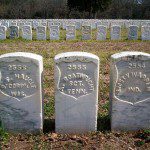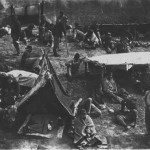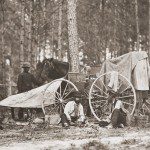Through the winter of 1864, after the stalemate at Mine Run in December, the Union’s Army of the Potomac and the Confederacy’s Army of Northern Virginia hunkered down in winter camp on opposite sides of the Rapidan River in Virginia. A Federal move on Florida had met with failure in February, as had a cavalry raid on Richmond. A campaign to traverse the Red River in Louisiana to cut off the flow of arms and goods from Europe to the Confederacy by way of Texas was getting off to a slow start, and an attempt by General William Tecumseh Sherman to link up with General William Sooy Smith and march troops from Meridian, Mississippi to Selma, Alabama had met with failure when Smith’s men were defeated by Nathan Bedford Forrest’s cavalry in an engagement at Okolona. Sherman burned the city of Meridian and returned to Vicksburg.
Full article in the March 13th edition of the Express.









